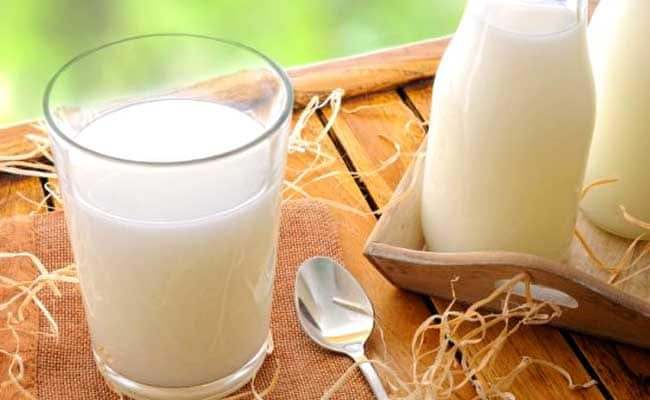Dec 19, 2018
70 coconut oil brands banned
Commissioner of Food Safety Anand Singh has issued orders banning the manufacture, storage, distribution and sale of 70 brands of coconut oil in the State as these have been found to be “substandard” and adulterated with other cheaper oils.
Food Safety officials said here on Tuesday that while none of the prohibited brands were deemed “unsafe for human consumption”, on laboratory testing, these were found to be “not of intended quality” and a clear violation of the Food Safety and Standards Act, 2006.
Officials said some brands of coconut oil in the market, while meeting quality norms, were found to be violating labelling norms.
“Coconut oil does not naturally contain trans fats, so making claims on the label that a particular brand does not contain trans fat is a way of misleading consumers,” an official pointed out.
Storage and sale of prohibited brands of coconut oil is a crime which invites penal action, the commissioner has warned retail traders.
Over 15k cases registered for violating food safety norms during 2017-18: govt
As many as 24,262 of the total 99,353 samples of food products analysed during 2017-18 were found to be non-conforming to food safety norms, Minister of State for Health Ashwini Choubey told the Rajya Sabha on Tuesday.
The minister said 15,121 cases were registered during the period, in which conviction was ordered in 5,198 cases while penalties were imposed in 7,627 cases.
An amount of around Rs 25.23 crore was imposed as penalty, he said.
In 2016-17, 78,340 food samples were analysed, of which 18,325 were found to be violating the provisions under the Food Safety and Standards (FSS) Act, 2006 and prosecution (civil/criminal) was launched in 13,080 cases, Choubey said.
Of these, conviction was ordered in 1,605 cases and penalties were imposed in 4,757 cases, which amounted to nearly Rs 17.01 crore, he added.
Choubey further said that the enforcement of provisions under the Food Safety and Standards (FSS) Act, 2006 primarily came under the jurisdiction of the state and UT governments.
All food business operators in the country are required to comply with the provisions of the FSS Act.
To keep a check on food adulteration in the country, the state food authorities have been advised to maintain a strict vigil by regularly drawing food samples from all sources like manufacturers, wholesalers and retailers, and taking strict action against the offenders, the minister said.
9.9% Milk Samples Unsafe For Consumption, Says Government
The National Milk Safety and Quality Survey 2018 broadly suggests that milk in India is largely safe, said Minister of State for Health Ashwini Kumar Choubey.

The survey was initiated in May with sample size of around 6,000 samples for analysis
NEW DELHI:
A nationwide survey on milk adulteration by the FSSAI found 39 per cent of milk samples to be non-compliant with reference to quality parameters while 9.9 per cent were found to be unsafe for consumption, the government told Parliament on Tuesday.
The National Milk Safety and Quality Survey 2018 broadly suggests that milk in India is largely safe, said Minister of State for Health Ashwini Kumar Choubey.
He said the Food Safety and Standards Authority of India (FSSAI) had initiated the Nationwide Qualitative Screening of milk samples for on-spot qualitative and quantitative analysis of milk samples for quality parameters like fat, solids-not-fat (SNF), added water, protein content and safety parameters including adulterants, antibiotics and pesticide covering around 1,100 towns across the country.
The survey was initiated in May 2018 with a sample size of around 6,000 samples for qualitative analysis and 1,800 samples for quantitative analysis.
The interim report of the National Milk Safety and Quality Survey 2018 was released on November 13.
"As per the interim report, about 39 pc of milk samples were non-compliant with reference to quality parameters (fat, SNF, sugar and maltodextrin) but were without any safety issues. Only 9.9 pc samples were found to be unsafe for consumption.
"Thus, National Milk Safety and Quality Survey, 2018 broadly suggests that milk in India is largely safe," Mr Choubey said.
Non-bailable warrant against FSDA official
Bareilly: In 2003, a designated officer of food safety and drugs administration (FSDA) department official, DR Mishra had lodged a case in additional chief judicial magistrate court of Rampur against a Rudrapur (Uttarakhand) milk vendor refused to give milk sample to his team. Soon, he was transferred to another district but the court kept on sending him summons which ideally should have been sent to his successor in Rampur. Mishra never appeared before the court despite repeated summons due to which the court issued a non-bailable warrant against him.
On Tuesday, Mishra finally surrendered before the Rampur court to record his statements in the matter. “It was the matter of 2003. One of our teams were collecting sample from milk vendors come from Rudrapur to deliver milk in Rampur. When our team had stopped a milk van, the vendor refused to give them sample of the milk. Then we had lodged a case in ACJM court in Rampur. Today, it was the hearing in that matter and I reached court to record my statements,” Mishra said.
Subscribe to:
Comments (Atom)
